
Two Hearts in Waltz Time is a 1930 German film directed by Géza von Bolváry and starring Irene Eisinger, Walter Janssen, Oskar Karlweis, Willi Forst, Gretl Theimer, and S.Z. Sakall. It is an operetta written directly for the screen, with music by Robert Stolz.

Franz Ritter von Jauner was an Austrian theatre director and opera intendant. He was the subject of a 1940 biographical film Operetta in which he was played by Willi Forst.
Wien-Film GmbH was a large Austrian film company, which in 1938 succeeded the Tobis-Sascha-Filmindustrie AG and lasted until 1985. Until 1945 the business was owned by the Cautio Trust Company, a subsidiary of the German Reichsfilmkammer, and was responsible for almost the entire production of films in the territory of the Ostmark, as Austria was called at that time.

Willi Forst, born Wilhelm Anton Frohs was an Austrian actor, screenwriter, film director, film producer and singer. As a debonair actor he was a darling of the German-speaking film audiences, as a director, one of the most significant makers of the Viennese period musical melodramas and comedies of the 1930s known as Wiener Filme. From the mid-1930s he also recorded many records, largely of sentimental Viennese songs, for the Odeon Records label owned by Carl Lindström AG.

Karl Hartl was an Austrian film director.
Maskerade, is an Austrian operetta film, and a classic of German language cinema. The exceptional script of this, a great example of the genre of the Wiener Film, was by Walter Reisch and Willi Forst, who also directed. The German premiere was held in Berlin on 21 August 1934, the Austrian premiere in Vienna not until 26 September of the same year.
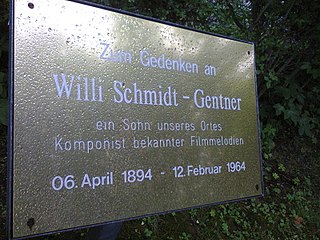
Willy Schmidt-Gentner was one of the most successful German composers of film music in the history of German-language cinema. He moved to Vienna in 1933. At his most productive, he scored up to 10 films a year, including numerous classics and masterpieces of the German and Austrian cinema.

Wiener Film is an Austrian film genre, consisting of a combination of comedy, romance and melodrama in a historical setting, mostly, and typically, the Vienna of the late 19th and early 20th centuries. The Wiener Film genre was in production between the 1920s and the 1950s, with the 1930s as its high period.
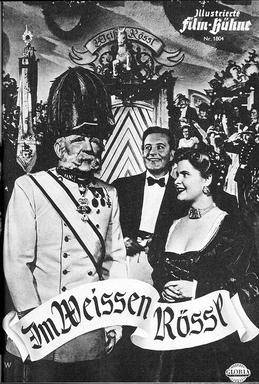
The White Horse Inn is a 1952 West German musical film directed by Willi Forst and starring Johanna Matz, Johannes Heesters and Walter Müller. It is based on the operetta The White Horse Inn and is part of the operetta film genre.
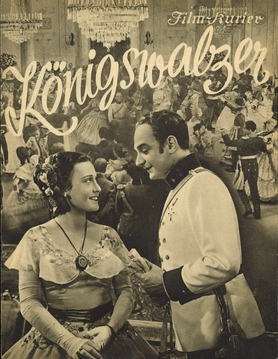
The Royal Waltz is a 1935 German musical film directed by Herbert Maisch and starring Paul Hörbiger, Curd Jürgens, and Carola Höhn. It was shot at the Babelsberg Studios of UFA in Berlin. The film's sets were designed by the art directors Robert Herlth and Walter Röhrig. A separate French-language version Royal Waltz was also released. It was remade in 1955 under the same title.
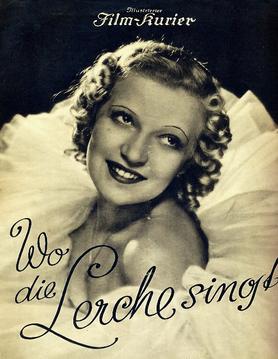
Where the Lark Sings is a 1936 musical comedy film directed by Carl Lamac and starring Mártha Eggerth, Alfred Neugebauer and Hans Söhnker. It is an Operetta film, based on the 1918 work Where the Lark Sings by Franz Lehár. The film was a German language co-production between Hungary, Germany and Switzerland.

You Don't Forget Such a Girl is a 1932 Austrian-German romantic comedy film directed by Fritz Kortner and starring Willi Forst, Dolly Haas, and Oskar Sima. The film was shot at the Halensee Studios in Berlin. It was the last film made by Kortner before he went into exile following the Nazi takeover of 1933.
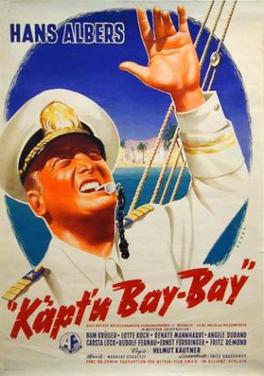
Captain Bay-Bay is a 1953 West German musical comedy film directed by Helmut Käutner and starring Hans Albers, Bum Krüger and Lotte Koch. It is in the style of an operetta film. It was shot at the Wiesbaden Studios and on location in Hamburg as well as Ischia and Naples in Italy. The film's sets were designed by the art directors Paul Markwitz and Fritz Maurischat.

Gently My Songs Entreat is a 1933 Austrian-German musical film directed by Willi Forst and starring Marta Eggerth, Luise Ullrich and Hans Jaray. The film was shot at the Sievering Studios in Vienna with art direction by Julius von Borsody. The film is a biopic of the composer Franz Schubert (1797–1828). It was Forst's directorial debut. A British version was made called Unfinished Symphony. The German title refers to the first line of the Lied "Ständchen" (Serenade) from Schubert's collection Schwanengesang, "the most famous serenade in the world", which Eggerth performs in the film.
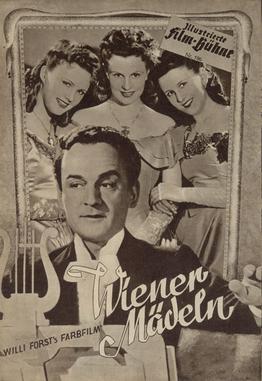
Viennese Girls is a 1945 historical musical film directed by Willi Forst and starring Forst, Anton Edthofer and Judith Holzmeister. The film was made by Wien-Film, a Vienna-based company set up after Austria had been incorporated into Greater Germany following the 1938 Anschluss. It was the third film in Forst's "Viennese Trilogy" which also included Operetta (1940) and Vienna Blood (1942). The film was finished in 1945, during the closing days of the Second World War. This led to severe delays in its release, which eventually took place in 1949 in two separate versions. One was released by the Soviet-backed Sovexport in the Eastern Bloc and the other by Forst.
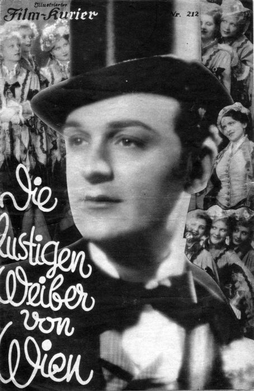
The Merry Wives of Vienna is a 1931 German musical comedy film directed by Géza von Bolváry and starring Willi Forst, Lee Parry, and Paul Hörbiger. It was shot at the Tempelhof Studios in Berlin. The film's sets were designed by Andrej Andrejew and Gabriel Pellon. It is an operetta film set in pre-First World War Vienna.

Court Theatre is a 1936 Austrian drama film directed by Willi Forst and starring Werner Krauss, Carl Esmond and Hortense Raky.

The Forester's Daughter is a 1952 West German musical comedy film directed by Arthur Maria Rabenalt and starring Johanna Matz, Karl Schönböck and Will Quadflieg. It is based on the 1907 operetta Die Försterchristl, which is set in the Austrian Empire during Franz Josef's reign. The film is part of the operetta film subgenre. It was shot at the Bavaria Studios in Munich and on location around Bad Tölz. The film's sets were designed by the art director Robert Herlth.
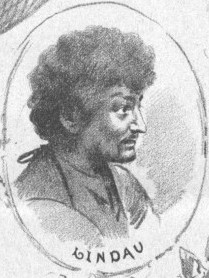
Karl Lindau was an Austrian actor and writer. He excelled in comic roles at the Theater an der Wien, and wrote several plays, librettos for operettas and songs.
Dorothea Anna Chlotilde Komarek was an Austrian dancer, actress and operatic soprano.

















